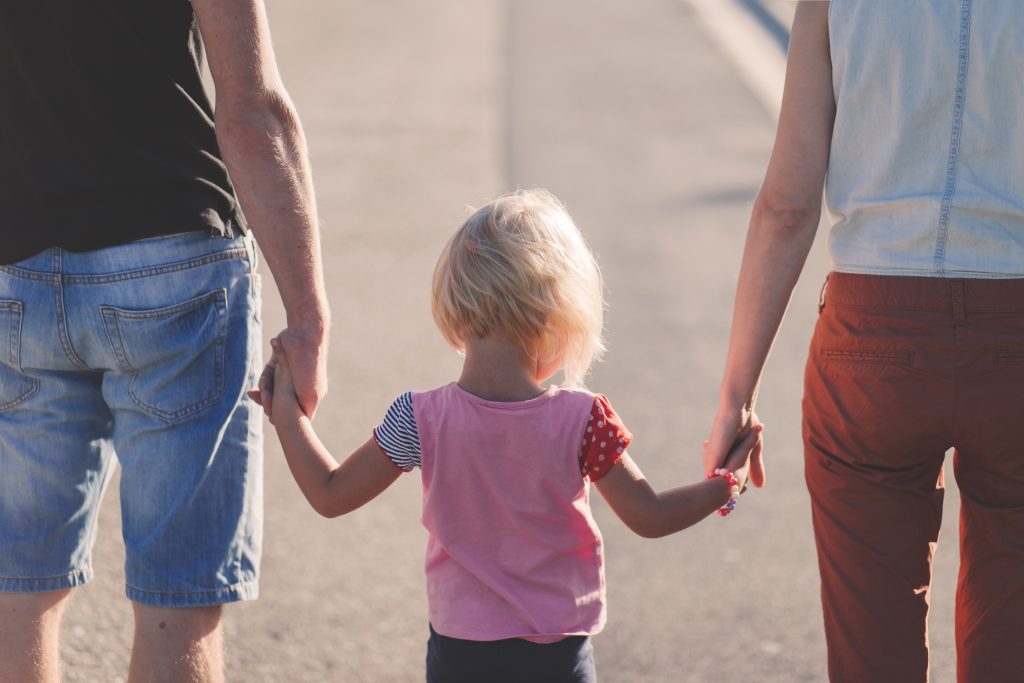During The Divorce
If divorce is a major upheaval to an adult, it is far more destabilizing to a child. Even if you had a poor relationship with your spouse during your marriage, you were together, and that is important to children. It’s likely all that they have known, and the thought of Mom and Dad being apart, is devastating. It’s confusing, unknown, and scary to them.
Children fear that they are losing one (or maybe even both) of their parents. They are afraid that they may have to move away from the home that you all shared together. There is a very real fear that they will lose everything they know, including familiar friends, schools, pets, neighborhoods, playgrounds, and more.

If you did everything right during your divorce, you worked hard to alleviate all of your child’s fears about the coming changes. You clearly communicated every little change that would occur in your child’s life. You spent countless hours comforting them, giving them much needed attention, and reassuring them that everything will be fine. You put aside all of the turmoil, anger, and sadness you may have felt, and paid full-attention to your child’s needs. If you were able to parent this well during your divorce, you are a wonder, an enigma.
Realistically, if your marriage meant anything to you, there were probably quite a few days when even meeting your child’s most basic needs proved challenging. I can recall some days during this period that were a haze of mac-and-cheese, too many cartoons, and very little patience for whining. You didn’t have all the answers and didn’t know exactly what the future would bring. It’s quite likely that you were confused, sad, angry, and fearful of the future, and no one can be their best under the heavy weight of such strong emotions. Hopefully, you did the best you could do under the circumstances, and found yourself somewhere between meeting your child’s basic needs and completely foregoing yours.
After The Divorce
It’s in our nature to find comfort in what is familiar to us. Divorce is a major disruption to that familiarity. It’s likely that the divorce will touch nearly every aspect of your life; it is a core change that impacts everything you do and know. You may be surprised that even the most seemingly mundane details and routines are likely to change due to divorce. Here are some of the surprising ways my life changed:
- Increased Responsibilities – This is a big one. I was no longer sharing day-to-day responsibilities with someone else. If something needed to get done (grocery shopping, cleaning toilets, laundry, helping with homework, etc.), I had to do it.
- Increased Available Time – Since I was sharing custody with my ex on an alternating week-to-week basis, I now had every-other week with few daily child responsibilities. I found this to be the best time to catch-up on all the increased responsibilities and to explore new interests.
- Decreased Available Support – This is also related to the increase in responsibilities. The spousal support you may have received previously is no longer readily available. I was lucky to get a lot of support from my extended family after divorce. I also had to push to be my own support when needed.
- Routines – The things I did and the way I did them when married, changed after my divorce. I moved to a new home, and had a different commute to work. I found that actual meals became afterthoughts, opting to eat junk or fast food on a too frequent basis. The house became awfully, painfully quiet at times. Sleep was often traded for long, soul-searching insomnia. In short, nothing was routine anymore.
So, don’t be surprised if your life after divorce is nothing like it was when you were married. It can be tough for any adult to endure, but it’s even tougher on your kids.

Your children will see less of one or both of their parents. Their physical living situations will change and may include moving to new homes (often downsizing to a smaller home). They may be forced to attend a new school. They’re level of contact with neighborhood friends may change drastically. They may have to endure longer commutes (e.g – to and from your ex’s home, to school, activities, etc.). Like you, they will likely be tired and stressed by the bombardment of changes they encounter. Unfortunately, most children will be navigating all this change with less emotional maturity and life experience to draw from.